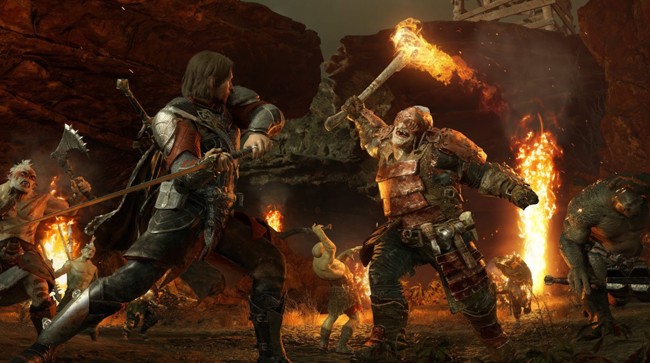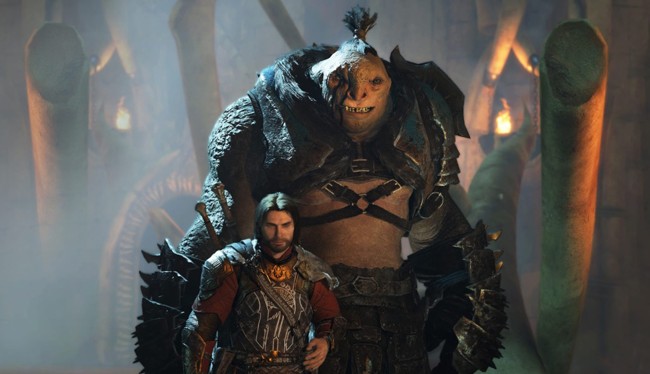
Disclaimer : The following article was written freely based on the author's opinion, and it may not necessarily represent Inven Global's editorial stance.
The timing couldn’t have been better. On October 3, Microsoft and Turn 10 Studios released Forza Motorsport 7, their latest racing simulator for Xbox One and Windows 10. Reviews were good, as we’ve come to expect for the series, but a change to the game’s reward system drew criticism from just about everyone. The introduction of “mods” in random loot boxes gave players significantly less freedom over how they earned in-game currency, whereas previous games allowed them to easily customize this experience to better fit their playstyle. There is currently no option to purchase these loot boxes using real cash, but there are plans for this to change in the future, potentially sending players into a vicious circle of paying money in order to unlock in-game currency – before running out and having to do so again.
Just a week after Forza 7’s release, Warner Bros. Interactive launched its latest action-adventure game Middle-earth: Shadow of War. Again, critical praise was almost unanimously positive, with quite a bit more content packed into the game and a combat system that riffs on the Batman: Arkham series. But Shadow of War – a predominantly single-player experience – also included a loot box system at launch, giving players the ability to spend real cash in order to obtain high-powered orc minions and gear. Some of these can be earned in the game through the game’s standard currency, “Mirian,” but higher-level boxes cost “gold” and contain better orcs which allow you to make it through the game’s somewhat dry final act much faster. This gold can be acquired by completing certain activities in the game itself, by purchasing real cash, or by eating Totino’s pizza products, for some reason.

Not inevitable
When these systems make their way into $60, AAA video games, publishers and the most loyal fans always say the same thing: “You don’t have to pay for microtransactions to enjoy the game.” Most of the time, they’re completely right. I’ve never felt the need to spend any extra cash while playing Call of Duty or Battlefield. That legendary skin for Winston in Overwatch is tempting, but I can avoid shelling out cash by playing the game for extended periods of time. These games very rarely, if ever, require you to spend extra cash in order to succeed. But a few publishers have been inching closer toward this idea over the last few years, focusing more and more on items and abilities key to the gameplay experience instead of cosmetic bonuses. At first glance, it seems inevitable that this trend will continue, but we have to examine our past in order to see a microtransaction-free light at the end of the tunnel.
During the PlayStation 3 and Xbox 360 generation’s heyday, we were already seeing paid downloadable content working its way into traditional retail releases, but one particular product was the source of the most controversy: the “online pass.” Included in new copies of games for free, the one-time-use pass allowed players to access the online functions in a game, including multiplayer. If you purchased a game used, however, you’d have to pay a fee in the neighborhood of $10 to access multiplayer.
Multiple big-name publishers, including Electronic Arts and Ubisoft, embraced the passes as a way to earn revenue on games that had already been sold once – a move toward the “licensing” model so many companies have embraced. Electronic Arts even had the audacity to say players could “get more” out of its games by purchasing the passes, rather than admitting it was withholding content it used to include with its games regardless of how many owners they had in the past. Sony joined in on the fun too, even selling online passes for its PlayStation Vita titles.

Players win
Eventually, Electronic Arts discontinued its online pass system and included access to these modes in all of its games at no extra charge. In the course of a few months, Sony and Ubisoft followed suit. What dictated this change was not the plethora of companies using the online pass model, but those that weren’t. Activision and Microsoft were holdouts. Nintendo – forever the tortoise to every other company’s hare – didn’t charge an extra fee on any of its systems. Players had options. If they didn’t want to purchase an online pass for Battlefield, they could just switch to Halo or Call of Duty. It mirrored the success of the PlayStation 4 in the months leading up to its launch, as well, with Xbox fans jumping ship to a consumer-friendly console that hadn’t been doing everything in its power to control how you purchase games.
The problem with loot boxes and “time-saving” microtransactions is that they’ve found their way into just about every major publisher’s playbook. Activision uses them. Take-Two uses them. Even Nintendo offers a version of them through its Amiibo system. If just one of these companies were to take a step back and announce to the world that it was abandoning this system, at least for non-cosmetic items, the others would have no choice but to follow suit. Failing to adapt would make them look like the bad guys, rather than just another company falling in line with the rest of the industry.
To be clear, I don’t think microtransactions need to be eliminated from all major video games. Destiny 2 and Overwatch, for instance, are purely online experiences which will require some revenue stream in order to make it worthwhile for its creators to continue releasing content updates in the future. But publishers have to draw the line somewhere, or we’ll live in a world where games charge you every time your weapon runs out of ammunition. It sounds farfetched, but it’s actually something former Electronic Arts CEO John Riccitiello had suggested as a viable business strategy just a few years ago. Would we allow something this egregious to happen, the trust between game designer and player – the promise of a fair challenge – would be broken completely, and it would be almost impossible to ever rebuild it again.

Sort by:
Comments :0






